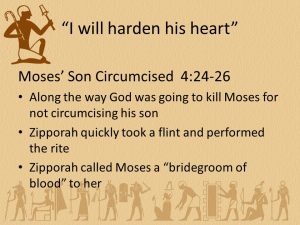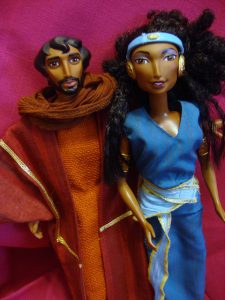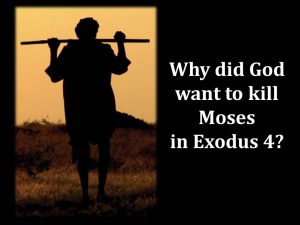
Wisdom-Trek / Creating a Legacy
Welcome to Day 841 of our Wisdom-Trek, and thank you for joining me.
I am Guthrie Chamberlain, Your Guide to Wisdom
A Tale of Courage We Never Teach – Wisdom Wednesday

Thank you for joining us for our five days per week wisdom and legacy building podcast. Today is Day 841 of our trek, and it is Wisdom Wednesday. The past several months on Wednesday we have been focusing on interpreting current events through a Biblical worldview.
To establish a Biblical worldview, it is important that you also have a proper understanding of God’s Word. Especially in our western cultures, we do not fully understand the scriptures from the mindset and culture of the authors. In order to help us all have a better understanding of God’s Word, we are investing the next several months on Wednesday reviewing a series of essays from one of today’s most prominent Hebrew Scholars Dr. Micheal S. Heiser, which he has compiled into a book titled I Dare You Not to Bore Me with the Bible.
We are broadcasting from our studio at The Big House in Marietta, Ohio. There were some practices during the Old Testament timeframe and culture that are difficult for us to understand today. As we continue to explore the Old Testament, our topic today is one such situation. Many preachers and Bible scholars avoid such passages, but we will look at one in our essay today titled…
A Tale of Courage We Never Teach

Moses’ encounter with God in Exodus [4:21]-26 is arguably one of the strangest, most confusing events recorded in the Bible. In this passage, Moses is heading back to Egypt, seemingly following God’s call to deliver the Israelites from Pharaoh’s vice-like grip. But then something shocking happens…
And the Lord told Moses, “When you arrive back in Egypt, go to Pharaoh and perform all the miracles I have empowered you to do. But I will harden his heart so he will refuse to let the people go. Then you will tell him, ‘This is what the Lord says: Israel is my firstborn son. I commanded you, “Let my son go, so he can worship me.” But since you have refused, I will now kill your firstborn son!’”
On the way to Egypt, at a place where Moses and his family had stopped for the night, the Lord confronted him and was about to kill him. But Moses’ wife, Zipporah, took a flint knife and circumcised her son. She touched his feet with the foreskin and said, “Now you are a bridegroom of blood to me.” (When she said “a bridegroom of blood,” she was referring to the circumcision.) After that, the Lord left him alone.
This passage is not only difficult and confusing, but it raises numerous questions. Why would God want to kill Moses right after calling him to deliver Israel? In addition to this theological conundrum, there are other uncertainties. We are startled and confused when Zipporah, Moses wife (Exodus [2:21]), deals with this threat by immediately circumcising her son Gershom and touching the foreskin to Moses “feet.” What does that mean? And why would her action pacify God’s wrath?
· Doing the Wrong Thing: Moses’ Negligence
If we looked at the original Hebrew text of this passage, we would notice that the name Moses does not actually appear in the phrase translated as “touched Moses’ feet.” The text literally reads, “touched his feet.” Consequently, Zipporah could have taken the foreskin and touched either Moses or Gershom, which would affect our interpretation. However, since Moses is the major character in the wider context, it seems logical to conclude that God is angry with Moses, not Gershom.
Why is God angry? We can infer the answer from two considerations: the difference between Egyptian circumcision and that prescribed by the Abrahamic covenant (Joshua 5:2-9; Gen 17), and the circumstances of Moses’ birth and childhood (Exodus 1-2).
Circumcision was practiced in Egypt, but Egyptian circumcision did not remove the foreskin; instead, the foreskin was split. Any Israelite born in Egypt who was circumcised in this way would not have been in accordance with God’s covenant. Since Joshua 5:2 says some Israelite men were being circumcised “a second time,” we can infer that something was unacceptable about their Egyptian circumcision.
Therefore, the ceremony in Joshua 5 would be a second circumcision for some men, but the first circumcision for those males born in the wilderness (Joshua 5:4). Circumcision was not only a sign for Israelite men, but also for women, who needed to be certain they were marrying Israelites and not men who worshiped other gods. Every married Israelite man was thus a “bridegroom of blood,” a man who had undergone the blood ritual of circumcision.
Since the other Israelite males were circumcised prior to the conquest at Gilgal (some a “second time” Joshua 5:2), we can reasonably assume that Moses had never been circumcised or was circumcised according to Egyptian custom. Had he been marked by Hebrew circumcision, he would likely have been in danger in Pharaoh’s household.
God’s anger at Moses in Exodus 4 is apparently due to Moses negligence in obeying God’s covenant ritual as a free man in Midian after he had fled Egypt. Exodus informs us that the Midianites knew the God of Sinai and practiced circumcision—Zipporah knew how to perform the ritual (Exodus [4:25]). Since God chose Moses as His representative to deliver Israel. Moses laxity in covenant obedience became an issue.

· Doing the Right Thing: Zipporah’s Courage
What about the meaning of touching the foreskin to the “feet”? This is not part of the normal circumcision ritual. However, the Hebrew word translated “feet” (-n, regel) is also used as a euphemism for genitalia or genital functions, including sexual exposure (see Judges [3:24]: 1 Sam 24:3: Ezekiel [16:25]: Ruth 3:4,7). The phrase in Exodus [4:25] makes sense only if Zipporah circumcised her son, Gershom, and then symbolically transferred that circumcision to Moses by taking the foreskin and touching Moses genitals.
Performing this rite was not only prudent but courageous. Circumcision in Israel was performed only by religious duty—and only by men. Moses had neglected the ritual, and now he, Zipporah, and little Gershom were already on the road back to Egypt. A circumcised Moses would be unable to travel, so Zipporah performed the ritual on Gershom and, symbolically, on Moses. Her deed was unprecedented but necessary. Zipporah acted in faith, and God relented. She saved Moses’ life and also atoned for his negligence. Moses was now a proper “bridegroom of blood.”

· Will It Preach?
We shouldn’t shy away from the difficult passages of scripture. By exploring the context of this passage, we understand that God’s anger is not capricious or unreasonable. This odd episode also presents us with several lessons. We must not neglect to do what God requires. Had Moses been obedient to the covenant ritual of circumcision after leaving Egypt, his life—and his role as God’s servant—would not have been in danger. We also need the courage to do what’s right, even if it seems out of place. Failure in any of these regards will create obstacles to God’s desire to use us for His glory.
Next Wisdom Wednesday we will continue with Moses as we look at Dr. Heiser’s next essay titled, “Counting the Ten Commandments.” I believe you will find this another interesting topic to consider as we build our Biblical worldview.
Tomorrow we will continue with our 3-minute wisdom nugget that will provide you with a bit of wisdom that, if followed will allow you to grow healthier, wealthier, and wiser each day. So encourage your friends and family to join us and then come along with us tomorrow for another day of our Wisdom-Trek, Creating a Legacy.

That will finish our trek for today. If you would like to listen to any of our past 840 treks or read the Wisdom Journal, they are available at Wisdom-Trek.com. I encourage you to subscribe to Apple Podcast or Google Play so that each day’s trek will be downloaded automatically.
Thank you so much for allowing me to be your guide, mentor, and most of all your friend as I serve you through the Wisdom-Trek podcast and journal.
As we take this trek together, let us always:
- Live Abundantly (Fully)
- Love Unconditionally
- Listen Intentionally
- Learn Continuously
- Lend to others Generously
- Lead with Integrity
- Leave a Living Legacy Each Day
I am Guthrie Chamberlain reminding you to Keep Moving Forward, Enjoy Your Journey, and Create a Great Day Everyday! See you tomorrow!
[…] Wisdom Wednesday we will continue with Moses as we look at Dr. Heiser’s next essay titled “A Tale of Courage We […]